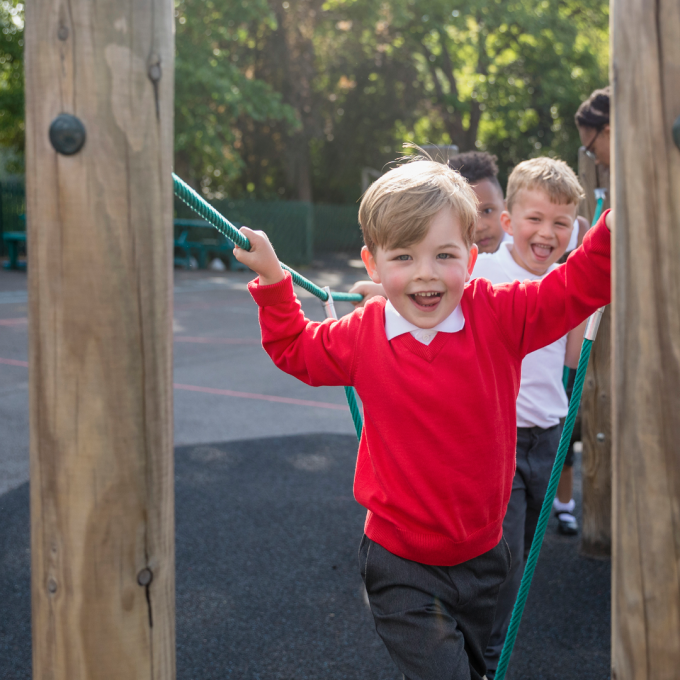Children and young people are growing up in an increasingly complex world. From the continuing impact of the pandemic, to the pressures of social media and the cost-of-living crisis. The stress of having to navigate these challenges can weigh heavy on their shoulders and begin to impact behaviour, attendance and learning outcomes.
To address these issues effectively, it’s essential for educators to learn how to build resilience in children and young people.
What is resilience?
Resilience is the ability to cope with difficult situations, learn from experience and develop the strength to take on future challenges. For children and young people, resilience has many benefits, from problem solving skills and the ability to manage stress, to improved mental health and wellbeing.
The role of resilience in children’s mental health
Resilience can have a significant impact on children and young people’s mental health. Without resilience, they can become easily overwhelmed and unable to see a way through difficult situations. They may struggle to manage their feelings, display distressed behaviour and struggle with low confidence and a lack of self-esteem.
However, building resilience can help to mitigate mental health challenges as it equips young people to handle emotional distress in a healthy way.
Why is resilience important for children and young people?
Coping with adversity
Life is full of challenges and setbacks. From losing a football match or struggling in an exam, to managing life events like moving schools or coping with the death of a loved one – everyone faces some kind of adversity in their lives. Building resilience in children helps them to cope with these challenges and come out stronger on the other side.
Building confidence and self-esteem
Overcoming challenges or bouncing back when things go wrong can help children and young people develop their confidence and self-esteem. Being resilient and proving to themselves that they are capable of handling difficult situations will not only make them feel more able to take on challenges in the future, but it will also add to their overall sense of wellbeing.
Developing problem solving skills
.png)
Resilience helps children and young people to develop their problem solving skills. Resilient children are able to think critically, problem solve and come up with solutions to overcoming a challenge, rather than giving up – a skill that will serve them well in all areas of their lives.
How to build resilience in children and young people at school
Encourage a growth mindset
A growth mindset is believing that your abilities can be developed over time with work and perseverance. Encouraging pupils to have a positive, growth-oriented perspective can help develop their resilience, as it teaches them that challenges offer an opportunity to learn and grow.
You can promote a growth mindset by praising effort and progress, no matter how small the achievement. When young people see their hard work paying off they’ll be more likely to persevere through challenges.
Teach coping strategies
Having a few go-to coping strategies can help children and young people to calm themselves down when things get too much. Explore different options with your pupils to see what works best for them. For example, deep breathing techniques, positive self-talk or a calming activity like colouring could make all the difference when they’re feeling overwhelmed.
Mindfulness exercises, including meditation and yoga, can help children and young people learn how to regulate their emotions and manage stress, which are important skills for building resilience. Incorporating a mindfulness activity into your daily routine can create a sense of calm and focus, which will benefit pupils’ overall wellbeing and mental health in school, as well as their resilience.
Create a supportive environment
Creating a safe and inclusive space where pupils feel comfortable sharing their thoughts and feelings will help to develop supportive relationships and create a sense of belonging. Open communication and empathy will help with resilience, as pupils know that if something goes wrong they have a support network to fall back on.
Model resilience
Children learn by example, so sharing stories about times when you had to overcome difficult situations and how you did it will show how valuable resilience is as a skill and demonstrate that it’s possible to overcome challenges.
Ready to build resilience in the children and young people you work with?
Thrive Licensed Practitioner training empowers you to actively develop the emotional wellbeing and resilience of the children and young people in your setting.
Discover how Thrive Licensed Practitioner training is improving wellbeing, boosting attendance, transforming behaviour, and increasing pupils’ ability to learn. Plus, hear first-hand from some of the 15,000+ educators reaping the personal and professional benefits of the course.
Schedule a Discovery Call
If you’re looking to build resilience in the children and young people you work with, and are keen to adopt a whole school approach to wellbeing, you’re in the right place.
.png)
To explore whether Thrive may be a fit, and for advice on the best package for your setting, click below to schedule a zero-obligation call with a member of the team.
Pass it on
Small actions can lead to a big ripple effect. If you enjoyed this post or found it helpful, please consider supporting us in our mission to help every child and young person feel safe, supported and ready to learn by sharing it using the social media buttons below.
Want to join a like-minded community of senior leaders and classroom staff benefitting from insights and strategies to improve attendance, behaviour and attainment? Add your email address below. (It’s easy to unsubscribe).



_680.jpg)


_680.jpg)